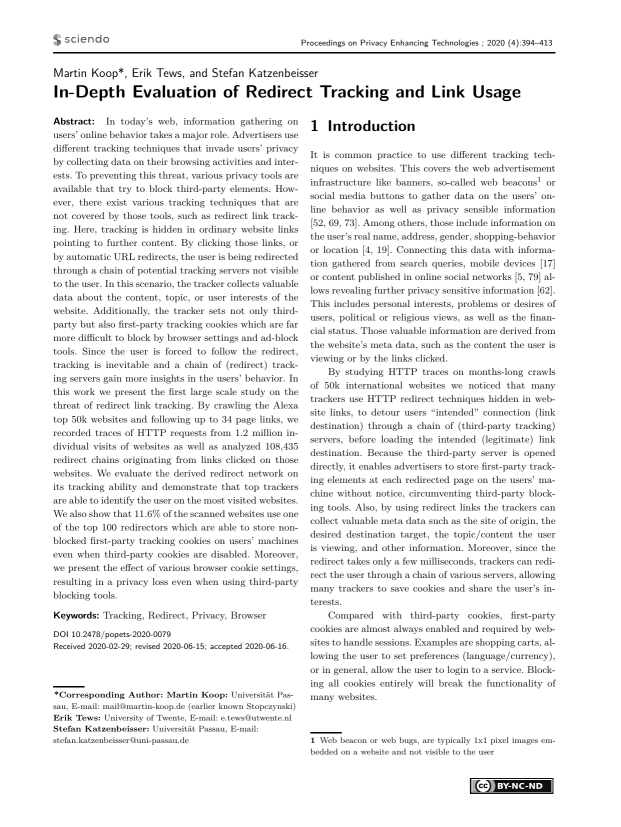In-Depth Evaluation of Redirect Tracking and Link Usage
Authors: Martin Koop (Universität Passau), Erik Tews (University of Twente), Stefan Katzenbeisser (Universität Passau)
Volume: 2020
Issue: 4
Pages: 394–413
DOI: https://doi.org/10.2478/popets-2020-0079
Abstract: In today’s web, information gathering on users’ online behavior takes a major role. Advertisers use different tracking techniques that invade users’ privacy by collecting data on their browsing activities and interests. To preventing this threat, various privacy tools are available that try to block third-party elements. However, there exist various tracking techniques that are not covered by those tools, such as redirect link tracking. Here, tracking is hidden in ordinary website links pointing to further content. By clicking those links, or by automatic URL redirects, the user is being redirected through a chain of potential tracking servers not visible to the user. In this scenario, the tracker collects valuable data about the content, topic, or user interests of the website. Additionally, the tracker sets not only thirdparty but also first-party tracking cookies which are far more difficult to block by browser settings and ad-block tools. Since the user is forced to follow the redirect, tracking is inevitable and a chain of (redirect) tracking servers gain more insights in the users’ behavior. In this work we present the first large scale study on the threat of redirect link tracking. By crawling the Alexa top 50k websites and following up to 34 page links, we recorded traces of HTTP requests from 1.2 million individual visits of websites as well as analyzed 108,435 redirect chains originating from links clicked on those websites. We evaluate the derived redirect network on its tracking ability and demonstrate that top trackers are able to identify the user on the most visited websites. We also show that 11.6% of the scanned websites use one of the top 100 redirectors which are able to store nonblocked first-party tracking cookies on users’ machines even when third-party cookies are disabled. Moreover, we present the effect of various browser cookie settings, resulting in a privacy loss even when using third-party blocking tools.
Keywords: Tracking, Redirect, Privacy, Browser
Copyright in PoPETs articles are held by their authors. This article is published under a Creative Commons Attribution-NonCommercial-NoDerivs 3.0 license.

